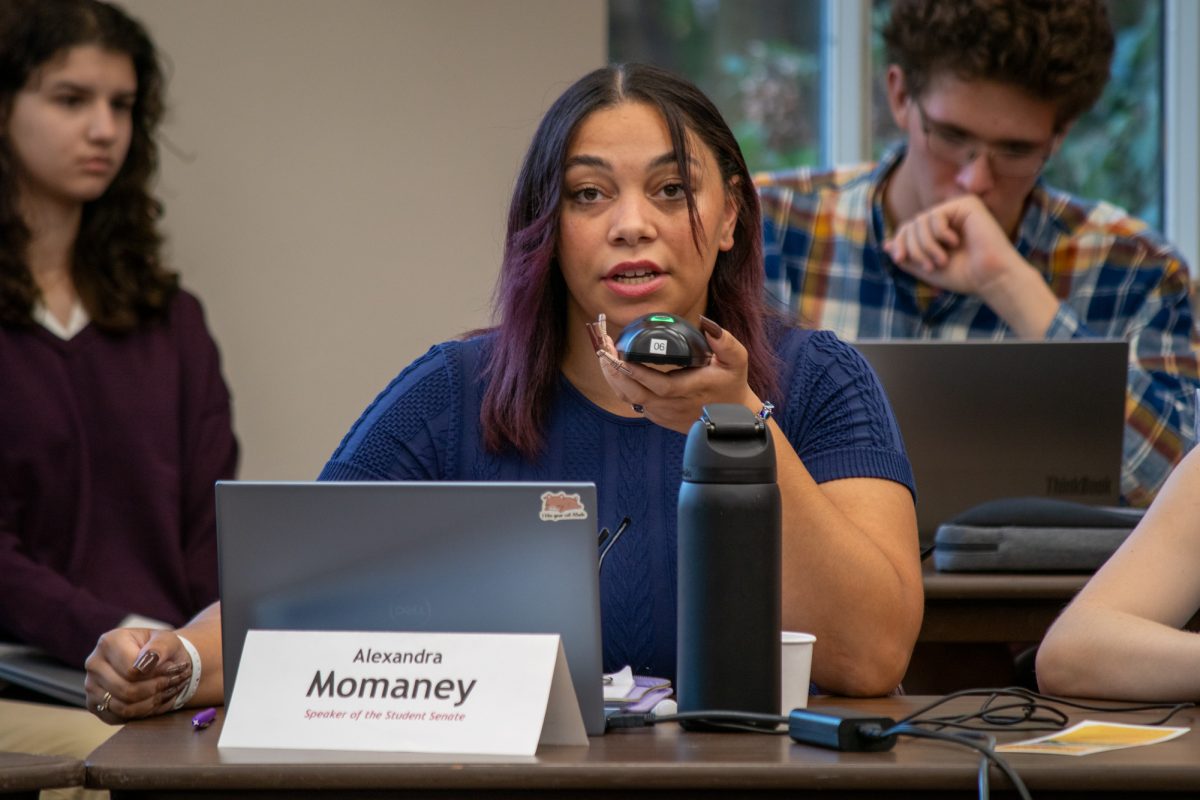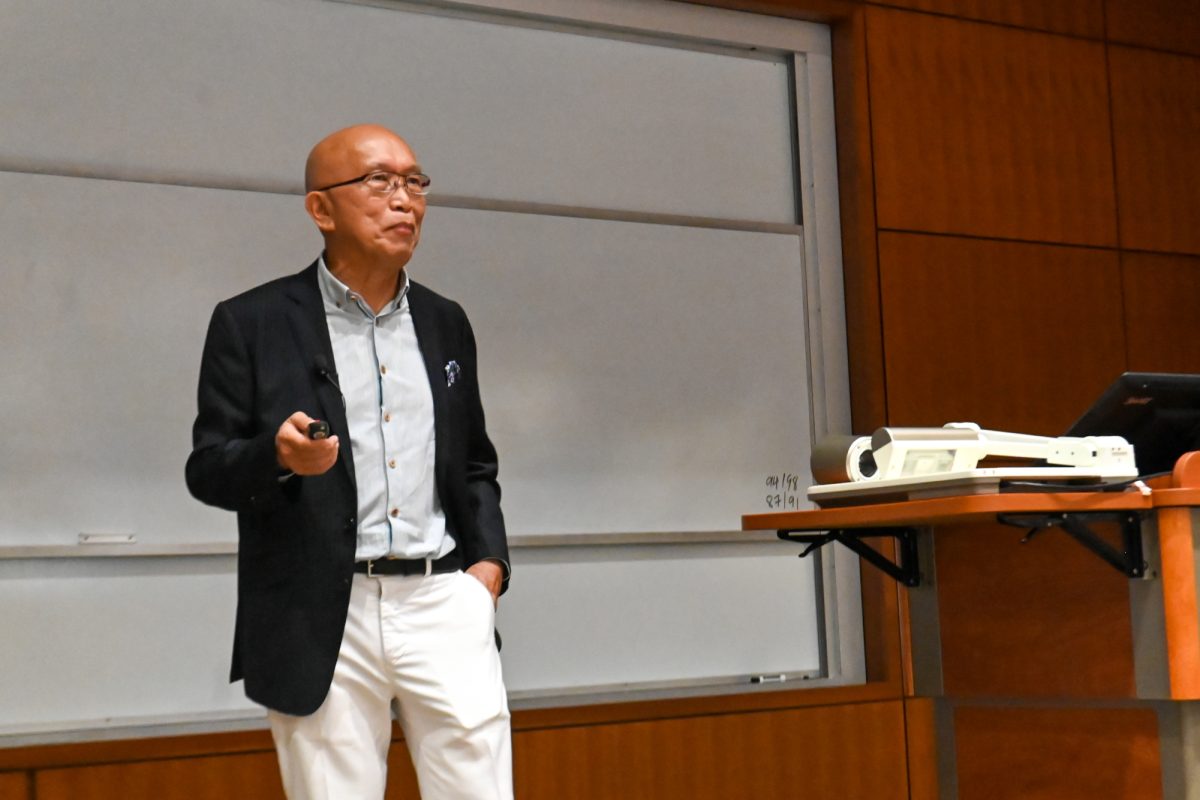Reach out and touch someone, but ask first
November 17, 1998
Going to the movies can be an escape from the daily struggle we call Life, but it can also be a connection to those things you would rather not think about. Last night, thanks to “Living Out Loud,” I am now not only painfully aware that I have no social life, but I also know that it is 100 percent my own fault. I plan to change that by talking to strangers.
At one point, Judith, played by Holly Hunter, is sitting alone in a restaurant and reading a book (something I also have been known to do).
She looks around and sees nothing but couples: men and women, and women with their friends, and loneliness creeps into her expression.
Then she imagines the woman waving to her, beckoning her to come join the two friends at their table. But she was just imagining it.
I used to be the kind of person who would wave to you and say, “Hey, are you eating alone? Why don’t you join us?”
I loved meeting new people wherever I went. But most people don’t do that, and I have inadvertently become like most.
I know when I am closing myself off to strangers, avoiding eye contact by burying my nose in a book or newspaper.
A live human being would be far more interesting, but it would take effort.
For example, I eat alone every day in a residence hall where the people who choose to cook in the kitchenette often watch the ground and their prepared foods as if eye contact would blister the skin right off their faces.
No one says, “Hey, are you eating alone? Why don’t we eat together in the lounge?” And no one says, “Hey, are you lonely for a little company tonight? I am.”
Maybe that’s going a little too far, but what is so perverse about approaching someone with the idea of sharing time?
Humans are supposed to be social animals, and yet we stumble around like zombies only half-alive, waiting for something better to happen.
Some people are so afraid to speak that they will take their chances with five million sociopaths online before talking to the guy or girl sitting right next to them at a table in the Memorial Union.
Classes are great for meeting people. I love the conversations that go on before, during and after class, and I always leave Ross Hall feeling energized and intellectually stimulated.
Then I go back to my dorm room where a twin bed, a computer and an 11-inch television await me.
This isn’t enough.
College life should be a constant stream of challenges, a cornucopia of opportunities to meet new people and consider new ideas.
Life should be so stimulating that sleep is the last thing on our minds.
Then again, maybe I’m the only one who feels this way. Maybe everyone else on this campus is going home to living rooms full of interesting people, stimulating conversation and opportunities to get out and do new things whenever the ugly head of tedium threatens.
Maybe the other 23,999 students here at ISU are so busy enjoying life and their educational programs that they don’t have time to look up from their newspaper to say hello to someone new.
Yeah, and maybe all those guys who crowd into the bars on Friday and Saturday nights are only there because they needed a break from studying.
American society is too much like L.A.’s freeways: Everyone lives in their own little worlds, never touching one another, never making eye contact, avoiding behavior which might piss someone off because you know that anyone could have a gun.
The only place I see strangers relax together is in bars where alcohol takes the edge off inhibitions, but even bars have cliques.
And it isn’t race or ethnicity, age or sex that keeps us apart.
It’s our unwillingness to accept the rejection that is possible with each attempt to reach out to someone we don’t know.
Thanksgiving is approaching, and again we’ll hear the stories of how the Native Americans brought food to the starving settlers.
It could have been the beginning of a great friendship between the settlers and the indigenous people of this continent, though it didn’t turn out that way.
The colonists were only able to accept their own ethnocentric view of the world, making it impossible to accept anyone who was different.
Let’s not perpetuate separatism and isolation.
You say, “Well, I’m OK, so why should I worry about anyone else?”
The answer is because we’re all members of the human race and, if we want to preach peace in the world, we should at least get along with each other.
It’s time for us to look up and into the eyes of the people we pass within inches of every day and say hello.
Try saying “I like your smile” or “Hey, haven’t I seen you before?” If they smile back at you, you did a good deed for the day, and you might even make a friend.
And if they tell you to get lost, you can smile at their obvious little fears and say, “Have a nice day.”
At least you tried. See you out there.
Kata Alvidrez is a graduate student in English from Los Angeles.






